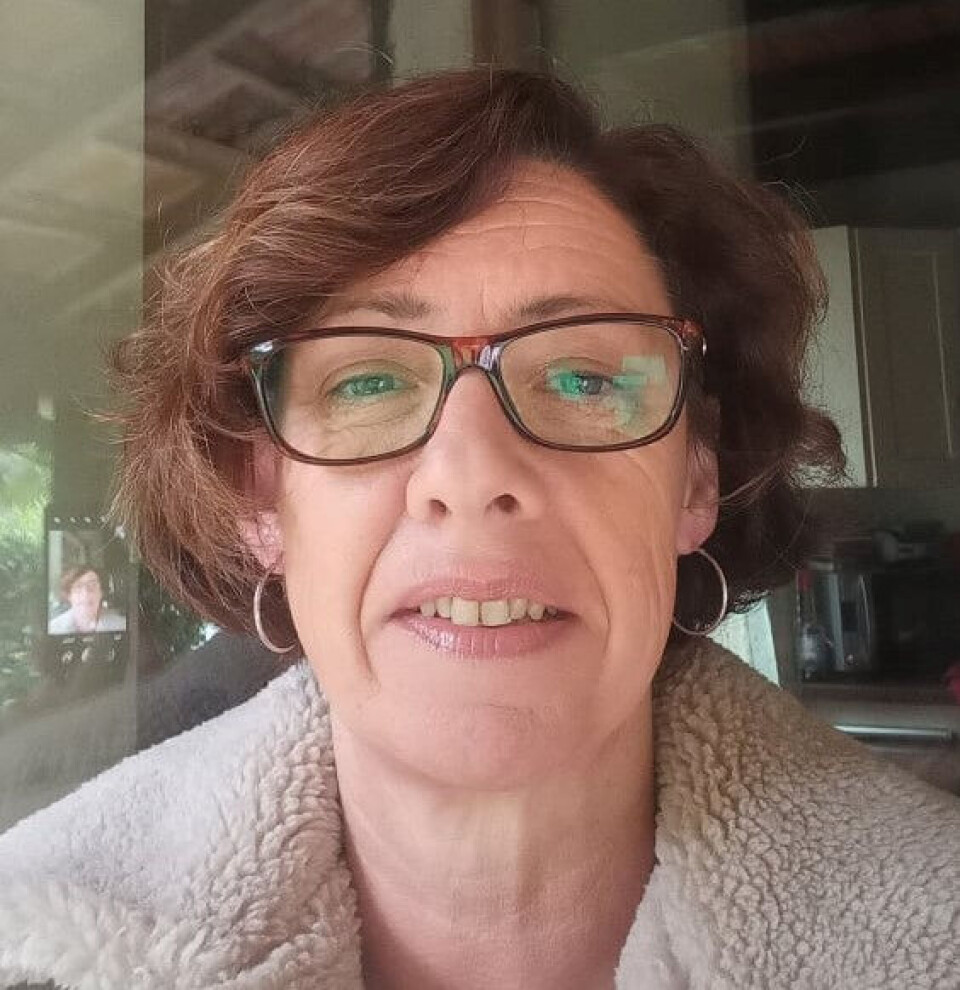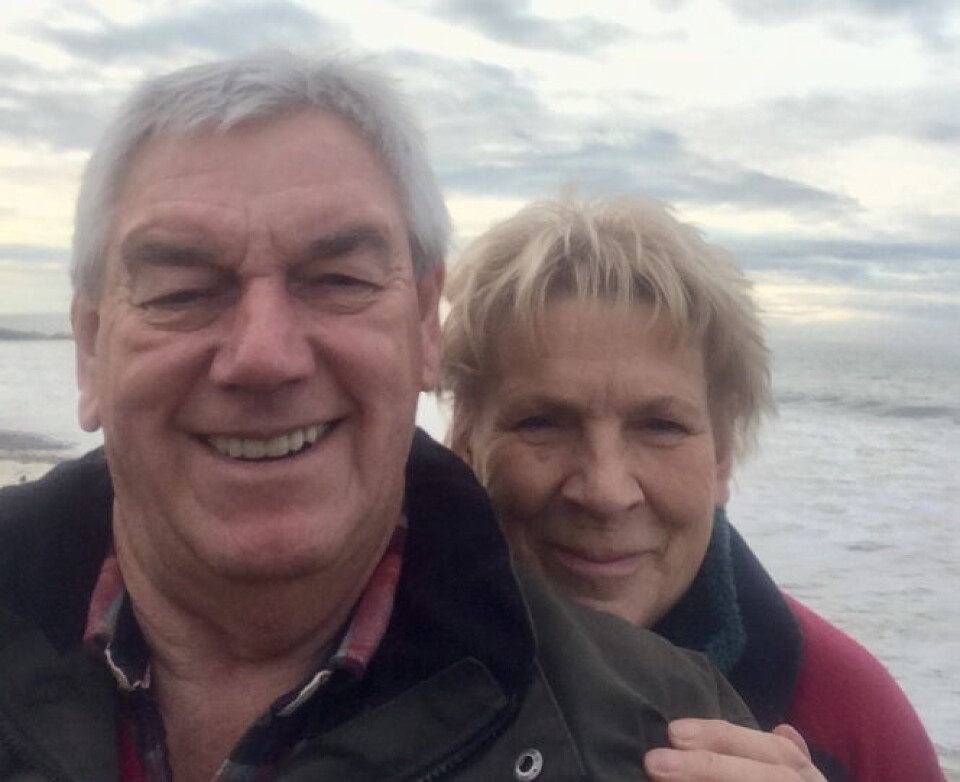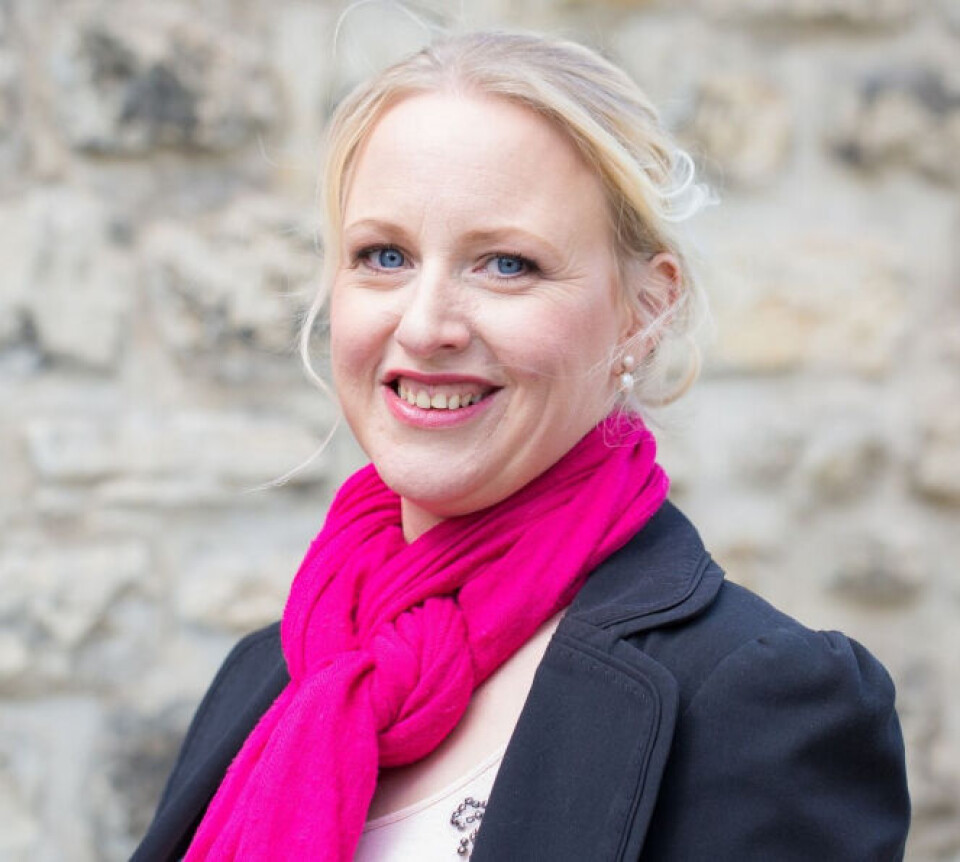-
Learning French: Have you ever dreamt in your target language?
From passive listening to active speaking, dreaming in French can indicate you are regularly practicing it
-
From English teacher to TikTok star in France: 'The way to help students learn is to believe in them'
Toulouse-based Monsieur Prof's educational videos on learning English are a social media sensation
-
Learning French: what does fastoche mean and when should it be used?
Plus, can you guess the meaning behind more simple slang terms ending in -oche
Five tips to mastering the French language when you move to France
Learning French as an adult can be difficult - five readers share their experience of what worked for them

Many of us arrive in France determined to be fluent within a few months, only to discover that learning a language in adulthood is not that simple. Five newcomers who have mastered French reveal the tips and tricks that worked for them.

Bev Noone, 51, a chambermaid, lives in the Lot, Midi-Pyrenees, with her husband Jim, 60
I first came to France to do seasonal work back in 1993, and met my other half, Jim, who is also British.
We worked the summer seasons in France, winter seasons in the UK for several years.
Eventually, in 2003, we settled in France and bought a house.
Each season we worked for an English firm on different campsites based in Dordogne. As we usually worked with English clients, our French did not progress much from the GCSE level we both had.
We went for French lessons on a weekly basis when we first bought the house, but after a couple of years we did not see any vast improvement. It was a bit like going back to school – you had homework every week and never wanted to do it!
Then, in 2014, I was made redundant. The company we had been working for got taken over and everything changed.
We went to one of the campsite owners we had worked for and inquired about a job. Jim is really skilled and experienced when it comes to mobile home repairs, so they snapped him up. I got a job as a cleaner on the same site.
The other five women on the cleaning team were French and I had no choice but to try to converse with my limited language.
I used to feel sick with apprehension every morning.
It was made worse by the fact they would use slang words I had never come across.
After four seasons, my French had improved dramatically, and I took a job in a local hotel.
I now believe the only real way to learn is to be immersed. When you speak French all day, your ear seems to tune in.
Before, I had always felt on the back foot. Now I feel more at ease – though I probably know a few words I would rather not know!

Liz Francis, 75, a retired designer and commercial illustrator, lives in Quibou, in the Manche department in Normandy, with her husband Rod
We arrived in France in 2006, clutching our Michel Thomas CDs, having not studied French since school days.
I had travelled to France for work at one point in my career, so my comprehension of the written language was reasonable, but I had no real spoken French.
Sadly, Michel Thomas failed to live up to the hype, for us at least. We found the CD method quite irritating.
We also tried Duolingo, but found it too Americanised.
Instead, we tried local French classes for a couple of years. My French did improve a little this way, but because I had been put in the intermediate group due to my comprehension, I struggled to keep up when it came to spoken French.
Then I had a brainwave.
Wanting to learn the words for items we used every day, I began to write Post-it notes and stick them to household items like the toaster, the bin, the biscuit tin. After a while, we had Post-it notes on everything in the house – and even in the car!
Gradually, I found myself thinking of items by their French name.
Of course, knowing the nouns does not give you the full sentence – but when you are listening to conversation, you start to pick out the words and it begins to make sense.
After a while, we started adding the verb we would use alongside the noun, like conduire in the car.
As our French improved, we began to mix more.
I sing with a French choir and Rod is a member of the Rotary Club, where everyone is French.
We have lots of French friends and are integrated into the local community.
Post-it notes were not the whole answer – but they helped move our French to the next level!

Jack Jenkins, 29, is a writer who lives in Angoulême with his wife Rebecca and their three children, aged six, five and six months
When we first came to France it was 2016, for an extended holiday of five months. During our stay, I tried Duolingo and would be on the app for over an hour a day.
At the time, our daughter, now six, was a baby, and I would spend a lot of time walking with her while she slept.
I used Duolingo at the same time so learned a lot quite quickly.
A couple of years later, in 2018, we decided to make a permanent move.
I work for a software company writing documentation – something I can do remotely. By the time we arrived, our children were bigger, we had a lot of paperwork to do and, as it was no longer a holiday, I had to work. But I still managed to get on the app every day, probably for at least an hour.
Duolingo is really thorough – they employ qualified linguists and I find the platform motivating.
It is gamified, and I am a sucker for getting the badge, earning the points, keeping the streak going. It really draws me in.
I have the app on my phone and, as I do not use social media, whenever I have a free minute – for example, if I am waiting to pick the kids up – I hop on Duolingo.
By the end of the first year, I could speak French confidently – even on the phone. And now I would class myself as verbally fluent.
My written French is not perfect, but I do not use it that often – although reading homework with the kids is helping to improve that too.

Jennifer Chamberlin, 44, founder of My Bilingual VA, lives near Meaux with her husband Sylvain and their two children, aged 13 and 14
I first came to France aged 16. My mum had encouraged me to apply for an intensive language course which involved six weeks of tuition in Paris, followed by an academic year at a French school in Nantes.
I had always loved languages, so I applied and – to my surprise – was accepted. At the time, I only had French GCSE: I could order a cappuccino in a cafe, but could do very little else.
My tutor described my French on arrival as “dreadful” – but after six weeks of tuition (four days a week from 9-4) I really accelerated.
Read more: How can I enrol for adult evening classes in France?
During this time, I lived with a French family in Nantes and went to school at 3ème level (Year 10).
The course changed my life. When I left, I went to university in London but did not enjoy the course.
In my second year, I saw a job advertised for a bilingual worker with Disney in Paris. I applied and was accepted. After two years, I went into bilingual secretarial work – my language skills made me very much in demand!
Now I work as a bilingual virtual assistant, running my own business. Although I was quite young, I was still old in terms of language acquisition.
For me, the combination of intensive tuition and full immersion in French life made the difference between learning a language and mastering it.

Dawn Smethurst, 67, who is retired, owns a home in Var with her husband Peter
I studied French literature at A-level, but had not used my French for years. I remembered the absolute basics, but my vocabulary was still really limited.
Then, in 2000, Peter and I bought a house in Var to use for holidays and eventual retirement.
With flights available from easyJet, we came over several times a year.
One day, in 2002, we were flying home and I bought a French translation of a book by an English novelist I knew. I wondered whether it might be tedious to read a novel in French but thought I would give it a go.
I used a dictionary with the first chapter, but after that the story grabbed me and I could get the gist even if I did not understand every word.
I began to pick up more novels, especially ones by authors who were already familiar to me.
Read more: Joining a library in France: A free way to improve your French
For me, it was the perfect way to learn, because it was something I could do at my own pace.
With film or TV, or in conversation, you have to keep up. With a book, you can look up words you do not understand.
Read more: Do you learn French with French films or TV shows? Here are three tips
And you want to keep going to find out how the story ends.
After a couple of years, I progressed to reading French novels, which tend to be stylistically different, so a little more challenging.
I tried to find ones that were set in areas I knew, so I would have a sense of place.
As my vocabulary improved, I tried to speak more often. I was not always pronouncing the words properly, but would adapt as I learned.
Our neighbours – both ex-teachers – have really helped. They are happy to gently correct me when I go wrong.
Reading novels is also good for slang, and conversation. You learn about places and settings – and if you read a book people know, you have something to talk about too!
Related articles
'Accents are all part of our charm – and English accents please us'
Learning languages ‘is easier with hypnosis’
French Netflix hits like Lupin can boost language skills
























